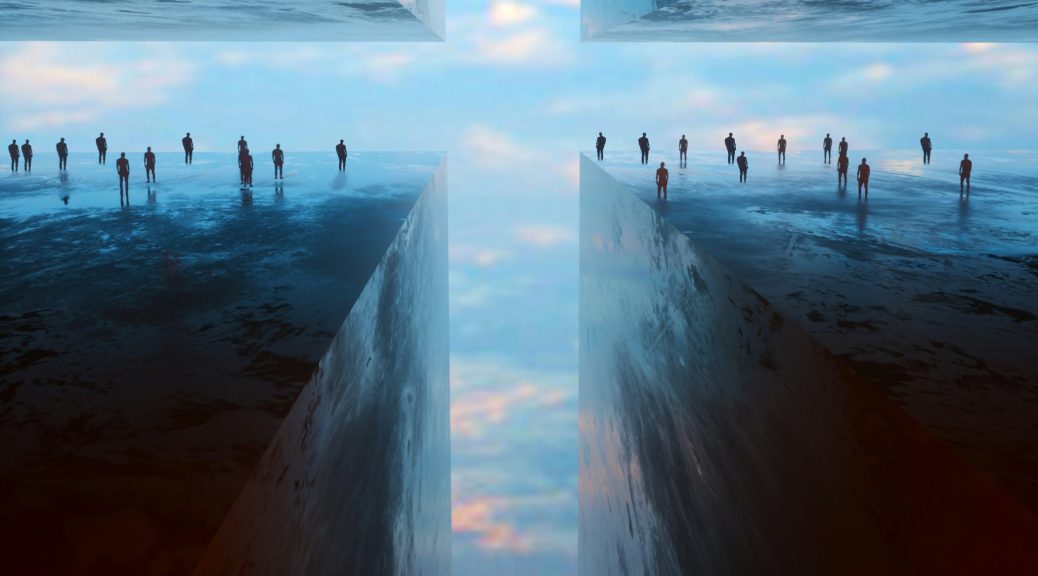The word Aporion is a neologism, drawn from the ancient Greek term aporia (ἀπορία), composed of a- (ἀ-, “without”) and poros (πόρος, “passage, way, ford”): “without passage,” “no way through.” It names a blockage, an impasse, a moment where forward movement collapses under the weight of irresolvable contradiction.
In philosophy, aporia designates a limit or an unsolvable situation. Especially in Plato, aporia signals not just confusion but the productive kind of blockade: the confrontation with limits that demands a new mode of thinking. Plato uses it to describe the moment when dialogue folds in on itself, confronting contradictions that destabilize its terms. For Aristotle, it is more negatively connoted as both a method and a danger: a necessary starting point for inquiry may end in the impasse of two opposed stances that may threaten to halt the conversation and force a decision.
Myth provides a different, metaphorical image. In Homer’s Odyssey, when Odysseus is trapped in the Cyclops’ cave, it is literally “a poros”, without passage. The exit does, in fact, exist, but it’s sealed. Brute strength fails. Only when the hero sheds his name, becoming outis (“no one”), does the possibility of escape emerge. The obstacle is not the stone but the self. Passage demands a relinquishing of identity.
The Aporion I envision is a space where thought circles. It is not the site of collapse, but the theatre of recursion. It is where questions turn themselves inside out. Where theory meets poetry, and metaphor holds what reason cannot. A space where every answer undoes itself on arrival. It is not a container of meaning but a site of suspension that can be approached but never entered, only circled, haunted, and written around. This site is devoted to this kind of thought experiment: thinking in negative space, staying with the impasse, and refusing premature resolution. It is also my personal space for putting these contradictory thoughts into words – therefore, “writing from the void.”
Whether the Aporion as a made-up space, eventually, must become inescapable restriction or instead, can become an enclosed space of endless possibility, I don’t yet know. But I’ve chosen to dwell here in curiosity, and maybe I’ll find out. You’re welcome to do so, too.
“A space must be maintained or desire ends.” — Anne Carson, Eros the Bittersweet
Feature Image: KNXRT / Unsplash
